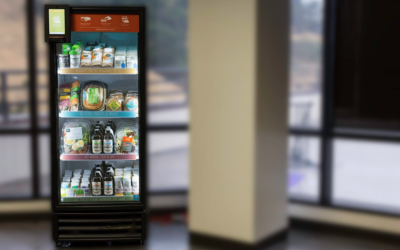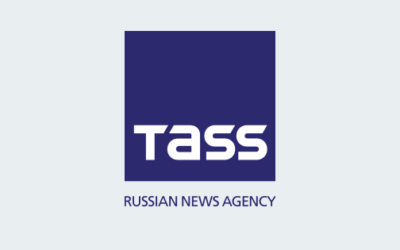Bobby Flay’s burger IPO will test whether his star power is enough to lure investors
Bobby Flay’s burger IPO will test whether his star power is enough to lure investors.
Potato chips and signature sauces may not be enough to lure investors to Bobby Flay’s burger IPO.
While the celebrity chef has plans to offer up shares of his fast-casual restaurant, Bobby’s Burger Palace, Morningstar’s R.J. Hottovy said now could be a bad time for an initial public offering, especially for such a small chain. “The smaller chains that don’t have the scale, you know, that might not be the best time to do it because you’re finding ways that Amazon is disrupting the business,” Hottovy said on CNBC’s “Closing Bell.” “And overall traffic is down in the restaurant space.
I’d be a little wary with an offering like this.”
The restaurant industry as a whole is crowded and competitive and the burger space even more so, leaving Hottovy to question if Flay’s chain will be able to gain a foothold.
While Flay has a few innovative burgers on his menu, including one with a layer of potato chips on top, Hottovy is skeptical.
Still, Flay’s name could be enough to garner investor interest.
The company is expected to launch a Regulation A+ initial public offering and seeks to raise about $15 million.
Leap Motion nabs $50M for its VR/AR hand-tracking tech
Leap Motion nabs $50M for its VR/AR hand-tracking tech.
Headset-based VR and AR may be a bit slower out of the gates than many had hoped, but investors are still pouring money into startups looking to change how consumers interact with the digital world.
Leap Motion, a hand-tracking company based in San Francisco, has raised $50 million in Series C funding led by clients advised by J.P. Morgan Asset Management, the WSJ reports.
The startup has raised nearly $95 million to date.
The startup, backed by some of Silicon Valley’s top venture firms, including Andreessen Horowitz and Founders Fund, has long billed its hand-tracking technologies as a replacement for the venerated mouse and keyboard, but the seven-year-old company has struggled to find interface problems for its technology to solve.
Three-dimensional hand-tracking always seemed to be an ill fit for interacting with objects projected on 2D desktop displays, but now with virtual and augmented reality, Leap Motion is aiming to master human-computer interaction on a platform that no one has really mastered to date.
Gathering human input for VR/AR headsets has been a tough challenge for hardware manufacturers already steeped in tough challenges, but Leap Motion has been slow to attract manufacturer support despite the sophistication of their hand-tracking platform, which reproduces a virtual skeletal model of the hand using computer vision that updates depending on a user’s hand positions.
Gaming-oriented VR companies like HTC, Sony and Facebook’s Oculus have opted for traditional handheld controllers on current generation hardware, but Oculus has already shown that it is experimenting with glove-like controllers.
So far, the company’s most prominent partnership success has been one with Qualcomm on a headset reference design for OEMs.
The company’s focus has largely been centered on consumers, but in a blog post announcing today’s funding the company detailed that it will be looking to “broaden its reach into new commercial and enterprise applications including education, healthcare, and industrial training simulation.” The company also announced it will be opening a new office in Shanghai.
Tech-powered residential real estate firm Redfin sets IPO terms at $12 to $14 per share
Tech-powered residential real estate firm Redfin sets IPO terms at $12 to $14 per share.
In a filing with the SEC released today, Seattle-based Redfin said it plans to sell 9.23 million shares in the $12 to $14 per share range.
Redfin, which grew market share in 81 of 84 of its markets, estimates that it will raise $107.8 million from the public offering of stock based on a $13 per share offering price.
It said it plans to use money from the stock sale for technology development, marketing and other corporate purposes, and noted that it could use the additional capital to acquire or invest in other companies.
As GeekWire reported last week, Redfin is very much looking to position itself as a tech-oriented company, part of a plan to command a higher valuation at the time of its IPO.
“If Redfin is a brokerage, making $256 million in revenues and losing tens of millions every year … it’s worth zip.
Zilch.
Redfin helped people buy 75,000 homes last year, with the company generating $267 million in revenue last year.
It continues to lose money, posting a loss of $22 million last year.
However, it also has been buoyed by a strong housing market in the U.S. as this graphic by Seattle Bubble author Tim Ellis shows.
WaveOptics, maker of waveguide-based optics for AR, nabs $16M
WaveOptics, a UK startup that builds waveguide-based optics — technology based on hologram physics and photonic crystals — for augmented reality hardware, has raised $16 million (£12 million) to help build the next phase of its business.
The Series B round of funding — which comes from previous investors Octopus Ventures, Touchstone Innovations plc and Robert Bosch Venture Capital GmbH; along with new investor Gobi Ventures (the prolific VC firm out of China that also manages one of Alibaba’s entrepreneur funds) — is one of biggest of the year for AR startups out of Europe, and comes on the heels of significant business wins for WaveOptics.
(For the record, he laughed but also declined to comment when I straight-out asked if those companies included Apple and Google.)
Indeed, we’ve seen a number of AR firms come to market building vertically integrated solutions covering both the software and hardware stacks, as well as software and apps that create experiences based on the basics of AR as currently works in existing hardware (such as Blippar, which also happens also be an investor in WaveOptics).
The company is building optics technology that can be used across different hardware, which it believes could change the rulebooks for where AR can be used, and how it can be used.
“AR optics with great user experience and affordable cost in the mass production is the key for market adoption of AR products,” said Hongquan Jiang, Partner at Robert Bosch Venture Capital GmbH, in a statement.
We are very excited about the company and expect much synergy between WaveOptics and Bosch in a variety of AR applications.” A demo video on the company’s website — whose URL is “enhancedworld.com” — gives you an idea of what WaveOptics is working on.
This new funding will allow the company to complete its product development and position itself as a leader and key technology enabler of highly compelling AR experiences,” said Robert Bahns, director at Touchstone Innovations, in a statement Many companies like WaveOptics, developing elements of AR and VR services rather than the end-to-end product, have become hot acquisition targets for tech giants that are working on their own AR strategies, Apple’s acquisition of Metaio in 2015 being one example (Apple has yet to release any AR or VR hardware of its own).
WaveOptics for now looks to be focusing on building its product and client base rather than exiting.
Talukdar declined to comment on any acquisition offers.
SBI Life files for Initial Public Offering, bankers say it may raise over Rs 6,400 crore
SBI Life files for Initial Public Offering, bankers say it may raise over Rs 6,400 crore.
SBI Life Insurance Co Ltd, a unit of the State Bank of India, on Monday filed for an Initial Public Offering of shares, reported Reuters.
An IPO is the first time a private company offers its shares to the public.
Bankers have said that the IPO could raise more than $1 billion (Rs 6,443 crore).
SBI Life will not receive any proceeds from the IPO.
Apart from BNP Paribas, the issue of shares is being managed by Axis Capital, Citi, Deutsche Bank, ICICI Securities, JM Financial, Kotak Investment Banking and SBI Capital Markets.
SBI Life will be the second public insurance company to offer its shares to the public.
ICICI Prudential Life Insurance Co Ltd was listed on the stock exchange in 2016, after an IPO valued at over $900 million (Rs 5,794 crore).
ICICI Prudential Life Insurace Co Ltd had raised Rs 6,000 crore in its initial share sale, Mint reported.
We welcome your comments at letters@scroll.in.
An Ashton Kutcher-backed media company is going public
Mario Anzuoni/Reuters An Ashton Kutcher-backed company has launched an initial public offering on the Nasdaq Stock Market.
Chicken Soup for the Soul, the publishing company known for its inspirational book series by the same name, plans to raise $30 million in an initial public offering for the firm’s entertainment unit, according to a news release.
The unit is going public via a Regulation A+ IPO.
According to a media representative for the firm, the offering “will close at the discretion of the company.”
Regulation A+ has made it easier for early-stage ventures like Chicken Soup for the Soul Entertainment to essentially crowdsource investment in a “mini-IPO.”
It’s like Kickstarter, except investors become real shareholders.
To be sure, this worries some regulators who think nonsophisticated investors may not fully understand what they are getting into.
Rouhana thinks Chicken Soup for the Soul Entertainment could be the Netflix for inspirational content.
In 2016, Chicken Soup for the Soul purchased A Plus, a Kutcher-backed media company.
Chicken Soup for the Soul Entertainment produces a wide range of video content including reality-TV shows such as Project Dad, which follows the lives of three celebrity dads, and The Sip, a series of inspirational short videos.
NetLink’s S$2.3b offering a shot in the arm for Singapore IPO market
NetLink’s S$2.3b offering a shot in the arm for Singapore IPO market.
SINGAPORE: Analysts are upbeat about Singapore’s initial public offering (IPO) market in the second half of the year, with the upcoming NetLink NBN Trust IPO expected to bring total capital raised to S$2.8 billion this year.
This will exceed 2016’s S$2.3 billion and the S$500 million posted in 2015.
NetLink Trust is the biggest IPO in Singapore in six years and is expected to raise about S$2.3 billion in fresh capital.
Kimly and UnUsUaL are the two best performing stocks among new issues this year, with Kimly up 52 per cent from its initial offer price of S$0.25, and UnUsUaL at more than 150 per cent higher than its offer price of S$0.20 at the close of markets on Jul 14.
“I think what we’re seeing is that the rally in equity markets, people are feeling more bullish, and this is on the back of global recovery in economic growth.
But the move could simply be business strategy, KGI’s Mr Ng pointed out, adding that doing so could mean better access to the greater China market.
“The Hong Kong market has an advantage because they are closer to China, and have a much bigger market in terms of the number of companies they have there,” he said.
“The niche of the market depends on the stocks you attract.
If I were to pick business trusts and REITs, Singapore is very strong; actually there are 40 REITs and business trusts listed on the SGX compared to about 15 in Hong Kong,” said Dr Kan.
Follow the Leader: Farid Chedid, Chairman and CEO, Chedid Capital Holding
Follow the Leader: Farid Chedid, Chairman and CEO, Chedid Capital Holding.
A year after celebrating the first decade in business for Chedid Capital Holding, a Dubai headquartered solutions provider in the insurance and reinsurance industry, and nearly two decades since founding Chedid Re, an insurance provider and registered Lloyd’s broker, Farid Chedid, the Group’s Chairman and CEO, believes that his enterprise’s strength is in the ability to cater for the changing needs of clients, businesses and markets in which they operate.
Furthermore, Chedid is the Chairman and CEO of Chedid Insurance Brokers network, which has offices in Lebanon, Saudi Arabia, and other countries in the region.
“It was back in 2006, just two years after we had established the holding company in Lebanon,” he says.
The second advice is to surround yourself with the best people, meaning the best in terms of knowledge but also in terms of integrity because, in crisis times, the best will fight to save the boat.” Today, the group’s three strategic business units, Chedid says, are all going from strength to strength.
Since 2010, our second strategic unit has been insurance broking, Chedid Insurance Brokers, which offers its services in five countries, and is expected to increase this number to 10 countries before the end of the year.
The third is insurance risk carrying, that is today operating in one country.” Given the number of years he has been a part of the MENA business arena, Chedid is confident that the GCC/MENA region is rich in business opportunities.”
“Any entrepreneur willing to start up a business and be successful in the MENA region, or anywhere outside of their country, should first understand the culture of that new country, the people of that country, their different traditions, and to try to adapt their strategic business tools to the new countries’ realities,” he says.
You need to adapt and hire people from that country because, at the end of the day, you are definitely partnering with the country’s values.
Others started with me but maybe couldn’t handle the pressure and decided to continue their career elsewhere.
ICOs won’t replace venture, they’ll benefit from it
ICOs won’t replace venture, they’ll benefit from it.
As much as ICOs are a fascinating innovation, as are the blockchain technologies enabling them, the idea that they will replace venture capital is a myth.
As of early June, blockchain-related startups have raised $327 million through ICOs, more than the $295 million blockchain entrepreneurs have raised through VC funding, according to CoinDesk.
And some VCs have been testing the idea of raising funds themselves with ICOs.
Of course, we are seeing instances where this validation doesn’t necessarily have to come from a VC.
There’s currently enough momentum for many ICOs to succeed even without any kind of validation.
A strong ICO would mean founders could negotiate from a position of strength in a venture capital round later.
A company that has already raised cash in an ICO could focus on finding a productive relationship with the right VC rather than being forced to partner with a VC who will provide the greatest amount of capital.
Also, in order to de-risk their investments, VCs often prefer not provide all of the capital in a round.
I believe VCs will be there as well.
Health insurance startup Alan adds life insurance
Health insurance startup Alan adds life insurance.
French startup Alan launched a brand new full-stack health insurance last year.
This week, the company is launching corporate-owned life insurance so that it can become a one-stop shop for all your corporate insurance needs.
When Alan launched its health insurance product, it was the first new one in France in decades.
This time, Alan didn’t get its own license to launch a life insurance.
But if you want to switch to a new provider, Alan isn’t going to stop you.
But you can expect to pay €17 for a €2,000 gross salary, €26 for €3,000, €39 for €4,000, etc.
Then your employees are going to be covered if they have a major accident at work.
Alan is going to take care of their families if they die.
But it turns out that most of their clients want to simplify their insurance contracts by centralizing everything with one insurance company.
Startups Aim To Bring Fresher Choices To The Office Vending Machine
Startups Aim To Bring Fresher Choices To The Office Vending Machine.
One of those startups is Byte Foods.
After a year of perfecting the combined offering of fresh food delivery with the product licensing model inherited from Pantry, the company is now looking to expand beyond the Bay Area with the cash from their recent $5.5 million funding round.
Another company bringing fresh food to office cafeterias as well as other locations such as O’Hare airport is Chicago based Farmer’s Fridge.
The company, which operates in about 75 locations throughout the Windy City, stocks their fridges with fresh salads made in their kitchen.
Customers can check their fridges for inventory with the Farmer’s Fridge app, which also helps them to find locations around town.
The company recently received a $10 million investment led by French food giant Danone’s venture arm, Danone Ventures.
Foodles, a French startup, is using a model similar to Byte where they will install turnkey connected vending machines stocked with food for $3,400 per month.
And as it turns out, big companies are also toying with the idea of fresher food from the vending machine.
And that’s exactly what this new crop of startups bringing fresher food to offices looks to do.
Funding dreams: Get a collateral-free education loan with just a click of a button
Quiklo helps Indian students get access to EMIs to finance their education, without the pressure of mandates placed by banking institutions.
These were still students who managed to afford the fees.
With all this combined, the cost of getting their children educated is huge and arranging for lump sum amounts every year is every parent’s biggest challenge.
After garnering a decent customer base, a lot of customers came back to Quiklo with the need of financing semester fees of colleges.
There are indeed several parents who cannot afford to send their children to a good college.
But the market just for education alone is huge.
In the education space, the challenge with commercial banks is that the average ticket size is usually at least Rs 5 lakh.
Moreover, they only disburse loans for the top 100 institutions in India.
In the case of loans for mobiles, tablets or laptop, the loan is given in the name of the student and a background check is run on them before the loan is disbursed.
On the B2B front, it aims to tie up with as many as 500 colleges and fund at least 20-25% of the students coming to these institutions.
Framebridge adds $17M in funding as it takes custom framing mainstream
Framebridge adds $17M in funding as it takes custom framing mainstream.
But Framebridge, a custom framing startup launched in 2014, is actually worthy of that title.
And today Framebridge is announcing they’ve closed a $16.7M Series B round, with Gordon Segal, co-founder of Crate and Barrel joining in as an investor.
The round means that the startup has now raised about $37M total, with follow-up funding coming this round from past investors like NEA, Revolution Ventures, SwaN & Legend Venture Partners.
The startup has turned an expensive and cumbersome activity into a cheap and easy one.
With Framebridge, you send them your piece using a prepaid label (or upload it if it’s a digital image you want them to print) and it’s framed and sent back within a few days.
The startup’s largest customer base are millennials, and 40% of their customers are under 35 years old.
if you talk to a framing shop they’d probably tell you that no one under 40 has ever entered their store – and for this reason many thought that millennials just don’t care about getting things framed.
Contrary to popular belief, young people still value memories and want to get things framed – they we were just turned off by the high prices and archaic turnaround times offered by old-school framing shops.
Tynan explained that the goal is just to continue doing what they are doing, while increasing scale and getting the word out to new customers.
This 32-year-old state senator is trying to get patent trolls out of Massachusetts
This 32-year-old state senator is trying to get patent trolls out of Massachusetts.
“That’s really when I started to get exposure to a lot of tech policy and some of the issues,” he says.
Fast-forward and today, among the issues Senator Lesser has become most focused on — because he sees it as among the bigger threats to Massachusetts’s economy — is patent trolling.
EL: I’d gone to Harvard, then Harvard Law School, and in my third year, I decided to jump into a race in the community where I grew up, and I won.
EL: In Massachusetts, you serve two-year terms, and after I was reelected to my second term, a friend who I was friendly with in college was at HBS and he sort of said, “There’s this thing that’s starting to create real issues,” and it was patent trolling.
The bills — and there are two other patent bills, as well — will be heard on Tuesday.
Is it good news or bad for you that there are two bills dealing with patent trolls?
It’s a level of the indication of interest and hopefully shows that a lot of members of legislature are involved in this.
TC: It looks like Anthony Petruccelli was a state senator for nine years.
TC: Is there a state that you’ve used in creating your bill, one that you think is getting it right when it comes to patent trolls?
Eric Gomez: Overseeing a Cannabis Startup Incubator
Eric recently joined our podcast host TG Branfalt to discuss the current climate for investors who are looking to get started in the cannabis industry, understanding the difference between making safe vs. disruptive investments, international investment opportunities as new medical and adult-use markets pop up around the globe, and much, much more!
I know we’ll get into the investment landscape in a bit here but a lot of investors are really, really taking a big risk and they’re saying, “Hey, I don’t know where this is going to go but I know it’s going somewhere, I know it’s growing very rapidly, and I know if I get in with the right teams and in the right sectors and protect myself well enough that I’m going to have a decent investment.” There’s that similarity.
TG Branfalt: I want to talk to you a bit about the projects that you are working on and you have worked on but before we get into that we got to take a short break.
I’m your host TG Branfalt here with Eric Gomez, CEO and founder of Canopy San Diego.
We all know that entrepreneurs, founders of companies and our companies in the accelerator have between one and three people in them.
I’m your host TG Branfalt here with Eric Gomez, CEO and founder of Canopy San Diego.
Where are these companies going to look for growth?
TG Branfalt: But I’m sure that you’ve had a lot more conversations with investors in this space than I have.
Eric Gomez: I would say it’s the same for investment in any industry, right?
One company is a lab-in-the-box company.
Canada’s Assent Compliance raises $31.4M Series B round to help businesses stay in compliance
Canada’s Assent Compliance raises $31.4M Series B round to help businesses stay in compliance.
Other participants include existing investors Volition Capital, Open Text Enterprise Application Fund, Business Development Bank of Canada, National Research Council of Canada Industrial Research Assistance Program, Royal Bank of Canada and a number of private investors.
With this round, the company has now raised $60 million CAD, making it one of the better-funded Canadian startups at the Series B stage.
Today it has 225 employees and, according to its own numbers, works with 40 percent of the S&P 500 product companies, which gather data from more than 300,000 companies around the globe.
Currently, even major Fortune 500 companies still tend to use Excel spreadsheets to audit and track their vendors, which isn’t exactly the most efficient way of doing this.
The company focuses on helping businesses request information from their suppliers and validate it.
While the company does some basic work on validating this information automatically, the plan is to use machine learning to better understand this data, which is often in standardized formats, but also often comes in as unstructured data.
As Waitman told me, the company’s $20 million CAD Series A round was mostly about expanding its product.
With this Series B round, the team plans to focus on expanding its sales and marketing efforts.
Featured Image: thitivong/Getty Images
BGI Genomics Announces Pricing of Initial Public Offering
BGI Genomics Announces Pricing of Initial Public Offering.
SHENZHEN, China, July 14, 2017 /PRNewswire/.
BGI Genomics, an independent division of BGI Group, today announced pricing of its initial public offering of 40.1 million shares at a list price of RMB 13.64 per share.
BGI Genomics’ IPO prospectus was first announced on the CSRC website in December 2015 and was updated in March 2017.
For the listing ceremony, BGI Genomics invited a group of patients and caregivers to ring the opening bell, signifying the successful launch of BGI Genomics in the Chinese capital market. “In the genomics field, we aim to dominate the market, creating a bright future for all by bringing both social and economic benefits,” BGI Genomics’ President Wang Jian said in his opening statement at the IPO ceremony. “Benefitting from our innovations in scientific research, the industry will become more active; by serving people’s lives as the starting point, the industry will also become more competitive and scalable.”
Wang, who co-founded BGI Group in 1999, vowed not to sell any of his holdings in the next five years, adding he would remain invested over the long term to drive the goal of reducing gene-related disabilities in China.
BGI Group was founded in 1999 with the vision of using genomics to benefit humanity and has since become the largest genomic organization in the world.
BGI Genomics provides a wide range of commercial next generation sequencing services and a broad portfolio of genetic tests for medical institutions, research institutions and other public and private partners.
How Nevada is driving smart traffic innovation in Sin City (and beyond)
The startup, WayCare, uses historical and real-time data from freeway sensors, traffic lights, smartphones and vehicles equipped with certain onboard data systems.
Driving smart traffic in Nevada Nevada was the first state to put autonomous vehicle (AV) legislation on the books.
“There was a lot of excitement about it.” But many of the projects in the works now are happening before widespread AV deployment. “What we are able to do with the technology now is bring in better types of data,” said Brian Hoeft, director of traffic management at RTC of Southern Nevada.
At the Consumer Electronics Show’s (CES) Smart Cities Hackathon, Las Vegas offered city data for teams to use.
Outside of apps and sensor pilots, Audi has a project that is car-based.
Certain models with the technology can get data from a connected traffic light system, with drivers getting sneak-previews of upcoming red lights and countdown timers displayed on their dashboard.
The GENIVI Alliance is working on a connected vehicle pilot project with NCAM aimed at reducing traffic and improving pedestrian safety.
The pilot project will be in approximately 100 vehicles monitored by the City of Las Vegas and RTC.
With all the projects, the potential for duplicative and wasteful data collection is there, but it’s a problem that Langford said has not happened with the pilots.

















